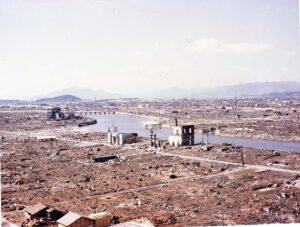Ramadan for drinkers
By Khaled Diab
With booze in short supply, the month of fasting can be a thirsty wait for some Muslims.
September 2008
In Europe, Ramadan creeps up on you with none of the fanfare associated with the fasting season in the Muslim world, where it is a unique time of year. It is a month of fasting and feasting, frugalness and greed, night turning into day, spirituality and commercialism. When it started this year, we'd arranged, by chance, to go out for drinks with some friends, where we, blasphemously, drank an impromptu seasonal toast.
While the majority of people go without food or drink from dawn to dusk, some Muslims suffer a special kind of thirst. For those who drink alcohol, the holy month can be a very dry spell.
Many do this voluntarily, much like Christians give up certain ‘bad habits' for Lent. One Bosnian woman describes people who practice this temporary abstention as being “Muslims on batteries”. In Bosnia, the majority of Muslims still drink alcohol, despite the growing religiosity of society there since the traumas of the Balkans conflict in the 1990s.
When I used to fast, I would have ‘one for the road' just before the holy month began, try to keep on the Ramadan wagon for the fasting season, and join friends for a new season of drinking after the Eid festival.
Curiously, Ramadan was the only facet of Islam I stuck to religiously. Long after I'd stopped entering mosques except to admire their architecture, I still continued to fast. This may have had something to do with the periodic and festive nature of the season, rather like becoming a football fan for the duration of the World Cup. The discipline, humility and endurance required may have played a role because it made it a ‘cleansing' personal challenge, as opposed to an empty a religious ritual.
While it's okay for Muslims to stop drinking during Ramadan out of choice, society often takes a paternalistic attitude towards drinkers. Egypt, for instance, has a booming alcohol industry, which comes to a virtual grinding halt during the holy month.
During Ramadan, Egyptians are barred from purchasing alcohol and all alcoholic outlets besides ones catering to foreigners close down. The first time I became aware of this peculiar legislation was when I was out with some foreign friends and we ordered drinks at the bar, only to be told by the waiter that I wasn't allowed to.
Feeling humiliated, I complained to the manager who made sympathetic noises and admitted that he would love to serve Egyptians, who made up the bulk of his clientele, but he would face an enormous fine if an inspector walked in. In fact, Ramadan is a month of major losses for bars and restaurants that serve alcohol.
This law is patently unfair because it forces Egyptian Christians to live by an Islamic rule, and it casts the state in the role of moral guardian. If alcohol is legal, what right does the government then have to force its citizens to behave temporarily like ‘good Muslims'?
It also leads to some absurd situations. Egyptians who do not wish to stop drinking clean out the off-licences just before they shut. Sometimes in mixed groups of expats and Egyptians, the foreigners will order binge quantities of booze, while the Egyptians will order a token soft drink and, with one eye on the door, they will all make merry.
The first Ramadan I was in Egypt after I acquired Belgian citizenship, I seized the opportunity to order a stiffer drink that previously permitted, and surreptitiously poured beer into an Egyptian friend's coke as we moaned about the injustice of it all.
Well, I shouldn't complain too much, at least drinking in Egypt is not a punishable offence like it is in the Islamic theocracies of Saudi Arabia or Afghanistan, and the law is more honest than in, say, Morocco, where Muslims are officially not allowed to consume alcohol, but everyone turns a blind eye – except during Ramadan.
In some countries, a veritable ‘alcohol war' is brewing between alcohol-free puritans and the booze brigade. Despite having licences to operate during Ramadan, several restaurants and bars in the Jordanian capital, Amman, have been shut down by over-zealous health inspectors on questionable pretexts.
The owner of Books@Cafe, a popular Amman hangout, summed up the situation by saying: “This is about where we stand in hypocrisy and bigotry…and where we will be if we remain quiet.” His article drew more than 200 outraged responses, with one poster describing the closures as “the pinnacle in state-sponsored stupidity”.
In Turkey, which normally has a relaxed attitude to drinking, a shop owner was attacked for selling alcohol during Ramadan in an upmarket Ankara neighbourhood.
Turkish revellers have been organising a campaign of boozy civil disobedience – which has continued into Ramadan – to defend their right to drink at a popular Istanbul quay. Meanwhile, life goes on as normal in Istanbul's Kadıköy district, where some restaurants serve traditional iftar for the pious and others offer alcohol for the secular punters.
Hundreds of millions of Muslims will be looking forward to the post-fasting festivities of Eid el-Fitr, which will be around 1 October, where I will get to observe the Indian version in Delhi. For Muslim drinkers, they will be eager to fall off the Ramadan wagon and head for their nearest watering hole.
This column appeared in The Guardian Unlimited's Comment is Free section on 27 September 2008. Read the related discussion.


